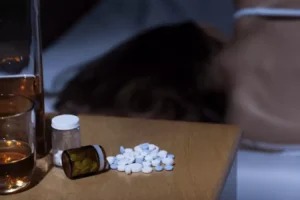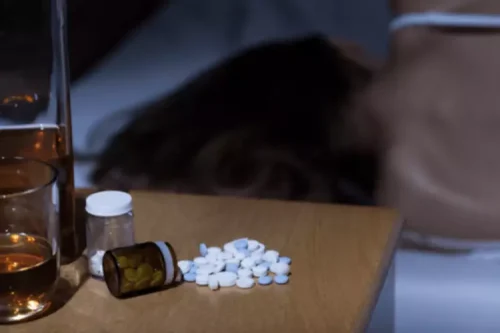
When someone attends rehab, they quickly learn that substances are not the only problem. One place to start might be to discuss the issue with a therapist or doctor who is already running a rehab alternative program to see if they can recommend a sober living home which would work well with their program. Surprisingly, you might find that it is not so difficult to locate a perfectly suited sober home to function as a rehab alternative. Sober living homes vary significantly from one to another, in the way their programs are implemented. There is not much standardization in the industry, though there is FARR credentialing, which does help somewhat to ensure compliance and consistency, regarding specific practices. The Sinclair Method, or TSM, is a novel approach to managing alcoholism, or helping anyone who feels that they drink too much alcohol to reduce and work towards quitting drinking.
- Understanding the difference can help people learn how to transition from sobriety to a more all-encompassing approach to lifelong recovery.
- Both options have the goal of supporting you in your recovery goals and allowing you the opportunity to gain the tools necessary to sustain your sobriety long term.
- People often use the names “sober living” vs “halfway house” interchangeably.
Improvement in Global Health
Sober living provides the opportunity for the residents to be independent and gain knowledge and skills at their own pace. The risk of relapse when someone leaves addiction treatment is particularly concerning. One study into people being treated for heroin addiction showed a considerable risk of death from overdose in the month following treatment. This indicates the need for greater health education of drug users and the implementation of relapse and overdose death prevention programs.

How Long Can You Stay in a Sober-Living House?
Regular attendance at such meetings, both during and after your time in rehab, can significantly bolster your recovery journey. It connects you with others who are also navigating their treatment programs, creating a community of understanding and empathy. This form of communal support, readily available in the vicinity of Los Angeles, is an invaluable asset for anyone working towards lasting sobriety and wellness. When you partner with the sober living team at Muse Treatment, you will be comfortable knowing that our sober living homes will be different from a halfway house. Although there will be specific rules you sober house vs rehab will need to follow as part of sober living life, you will still have access to our treatment team and the medical care you may need as part of your recovery.
Drug & Alcohol Rehabs in Valhalla, NY
Sober living provides a buffer, allowing you to adjust to a drug-free lifestyle gradually. Sober living homes provide a transitional environment for those who have completed rehab. Unlike the clinical setting of rehab, these homes offer a drug-free space where residents can continue their recovery journey while enjoying a more normal life. In a sober living home, you can go to work or school & manage daily responsibilities, all within a supportive, sober community. Another reason you may decide to move into a sober living home is as an alternative to going to residential treatment. Many people in sober living homes attend intensive outpatient treatment (IOP) or receive other outpatient addiction services.
- Both residences provide a space where people can live as a group and ease themselves back into daily life following a stint away from home.
- A sober living home is a residential home which is configured in such a way to be a safe place for people who are overcoming addictions to live.
- The outcomes of living in such an environment can include positive health, behavioral, and relationship changes.
In short, rehab provides intensive, structured treatment for addiction, while sober living homes are for people who are looking to maintain their sobriety in a sober environment. Additionally, most high-quality sober living houses also expect residence to attend recovery support meetings. They may arrange for a 12 step meetings, such as Alcoholics Anonymous or narcotics anonymous meetings, to be held in a common area.

Opiate Addiction Treatment Program
For example, there are people who choose to skip rehab treatment programs altogether, instead choosing outpatient medical care over residential treatment. They may choose to go to a private doctor for Suboxone treatment, if they have an opioid addiction issue. Or, if they have a challenge with managing their alcohol consumption, they may choose to see a doctor for naltrexone treatment. After leaving drug rehab, clients often move into a sober living house in Coral Springs. Living in a recovery residence is a transitional stage, helping a person to go from active substance abuse to living a life of recovery and responsibility.

But, while critical to those seeking sobriety from drug or alcohol abuse, each plays a completely different role in the path to a sober lifestyle. We publish material that is researched, cited, edited and reviewed by licensed medical professionals. The information we provide is not intended to be a substitute for professional medical advice, diagnosis or treatment.
- Some examples of additional services may include transportation to appointments, recovery coaching, meals and gym memberships.
- Residents are also encouraged to apply for work or school, fostering reintegration into society & developing a sense of responsibility.
- The spirit of a sober living home is to create a community where a tenant can live drug-free as long as they need to.
- Additionally, most high-quality sober living houses also expect residence to attend recovery support meetings.
Another benefit of rehab is your access to medical supervision during detox, which reduces the risk of complications, allowing you to get through it safely. Lastly, the structured environment helps you focus solely on your recovery while surrounded by people who support you. Some halfway houses have life skills training provided by social workers and other behavioral health staff. While SLHs do not offer formal treatment services, they provide a structured environment that encourages active participation in recovery activities and adherence to house rules. How long you stay depends on the sober-living facility and your progress in recovery. Some sober-living facilities are only offered for as long as you are in the treatment program.
